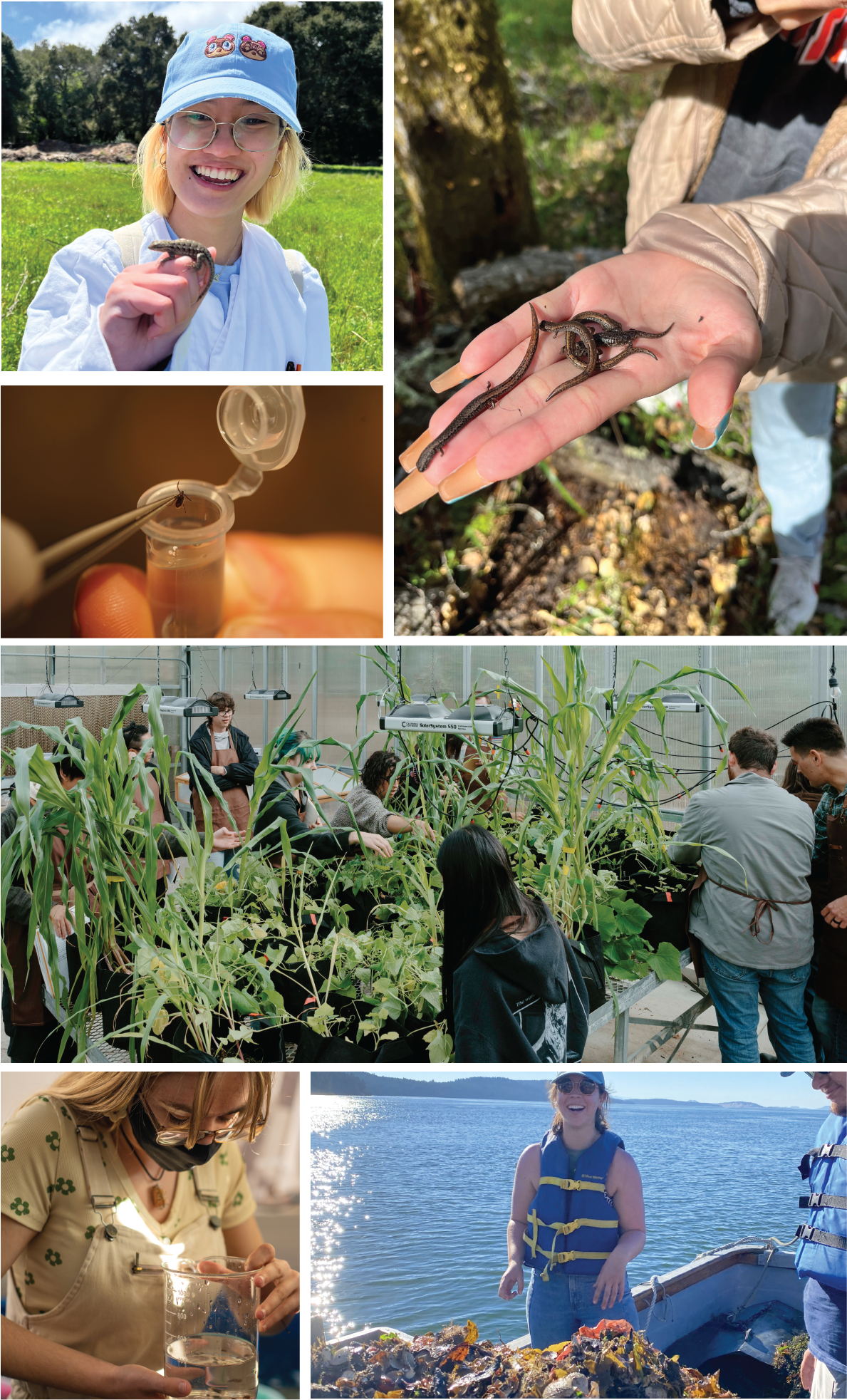This program offers a flexible but rigorous plan of study in the organismal life sciences for students interested in ecology, evolution, natural history, and conservation biology. The B.S. in EECB is suited for students preparing for a variety of careers, such as academic research, environmental consulting, natural resource management, conservation, and sustainability.
Ecologists and evolutionary biologists are systems level biologists who study organisms and the environment around them, examining relationships and interactions between wildlife, plants, and their surrounding environment. Depending on the specific coursework that students choose, the focus of study can be customized to student interest and career goals. This program offers training in animal and plant biology through coursework in evolutionary biology, ecology, behavior, anatomy, and physiology of both vertebrate and invertebrate animals as well as plants and marine organisms.
In all of our concentrations, research experiences in the labs of our world-class faculty and instructors are an integral part of student training. Hands-on experiences in our research labs, through the Biology Undergraduate Research Program (BURP), prepare our graduates for high-level jobs in industry or further training toward a higher degree.
The EECB program maintains a close association with the California Academy of Sciences, where extensive research collections of insects, invertebrates, fish, amphibians, reptiles, birds and mammals are available for a wide variety of studies by advanced undergraduate and graduate students.
Why choose a career in Ecology, Evolution, and Conservation Biology?
A degree in Ecology, Evolution, and Conservation biology prepares students for a broad array of career options including government, industry, and academic pathways.
The types of jobs that EECB majors can obtain are numerous and can include careers in veterinary science, various health professions, natural resource management, restoration, conservation, or environmental consulting. Majoring in EECB also prepares students for academic research and students may choose to continue their academics and pursue graduate studies in ecology, evolutionary biology, or other related areas.
